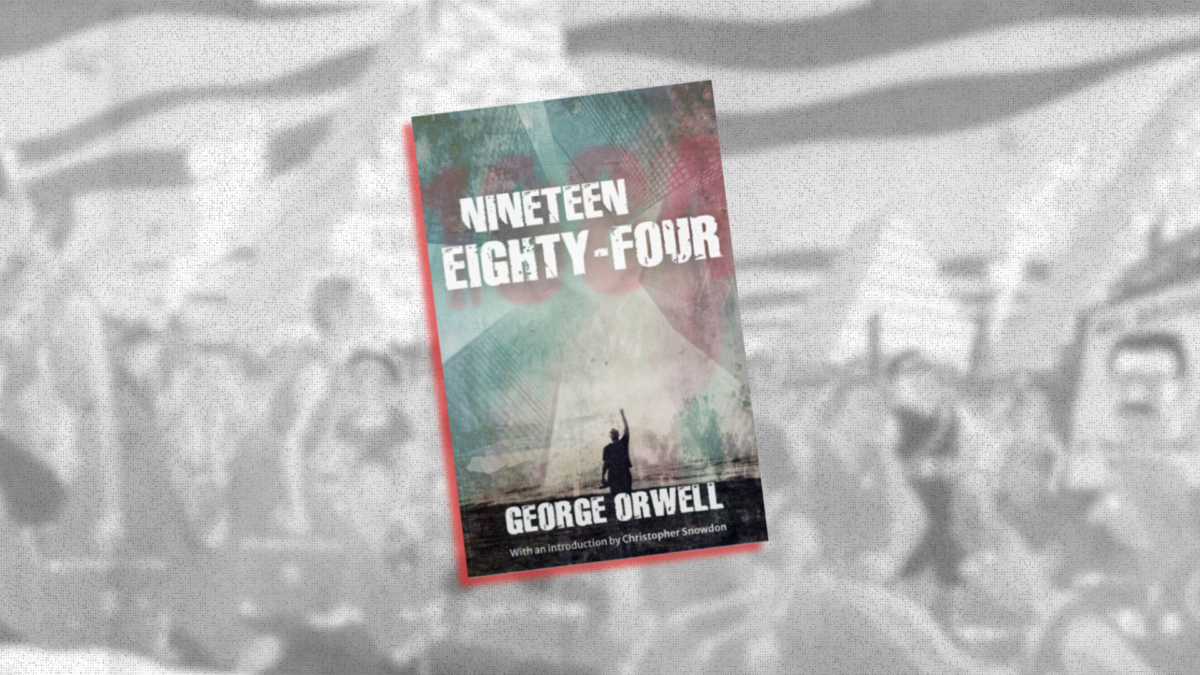Institute of Economic Affairs publishes 75th anniversary edition of George Orwell’s Nineteen Eighty-Four
SUGGESTED



- Nineteen Eighty-Four was a prescient warning about how a small group could use technology, manipulate language, and rewrite history to impose a totalitarian regime on society.
- Orwell, however, was too pessimistic about the rise of totalitarianism, stemming from his misconceptions about economics and liberal capitalism.
- The IEA’s new introduction to the book deeply delves into the roots, inspiration, economics, and legacy of Orwell’s magnum opus.
To celebrate the 75th anniversary of the UK publication of George Orwell’s classic dystopia Nineteen Eighty-Four (8 June 2024), the Institute of Economic Affairs (IEA) is republishing the novel with a new introduction by Christopher Snowdon.
Snowdon’s essay, You Do Not Exist: An Introduction to Nineteen Eighty-Four, is a tour-de-force that offers a fresh perspective on the masterpiece, delving into the Orwell archives to show that the seeds of the novel were sown many years before it was written.
Orwell is revered across countries and political divides, and his legacy permeates the English language, literature, and the concept of totalitarianism. But Snowdon does not just add to the chorus of praise and clichéd references.
What sets his introduction apart is the contention that Orwell’s misconceptions about economics made him too gloomy about the post-war world. Orwell believed in the inevitable demise of liberal capitalism, making him too pessimistic about the rise of totalitarianism.
In You Do Not Exist: An Introduction to Nineteen Eighty-Four, Snowdon explains:
- The roots of Nineteen Eighty-Four. Many of the ideas in the novel, such as the erasure of objective truth, the fabrication of history and the division of the world into three superstates, were recurring themes in Orwell’s letters and articles going back to the mid-1930s.
- The inspiration for Nineteen Eighty-Four. Often compared to Aldous Huxley’s Brave New World, Orwell’s dystopia owes more to such books as Yevgeny Zamyatin’s We, James Burnham’s The Managerial Revolution and Arthur Koestler’s Darkness at Noon.
- The economics of Nineteen Eighty-Four. Convinced that liberal capitalism was doomed, Orwell feared that the future belonged to totalitarianism unless his own brand of libertarian socialism prevailed. He was doubtful that Britain could prosper in a post-war world regardless of who governed the country. Why did he believe all this and why was he wrong?
- The legacy of Nineteen Eighty-Four. Orwell’s novel will be read as long as the fears that inspired it exist. Video surveillance was perhaps its most accurate ‘prediction’, but in an era of ‘fake news’ and postmodernism, Orwell’s warning that ‘the very concept of objective truth is fading out of the world’ remains prescient.
IEA author Christopher Snowdon says:
“Orwell wanted a planned economy that respected individual liberty but he was increasingly pessimistic in his later years about the prospects for libertarian socialism. The Soviet experiment had turned sour and if Orwell had lived to see the same tragedy play out in China, Cambodia, North Korea and many other countries, I suspect he would have come to see it as a systemic problem.
“The real year of 1984 is now further away from us than it was from Orwell when he wrote the novel, but Nineteen Eighty-Four has never lost its resonance. The immediate targets of Orwell’s satire are either gone (the USSR) or are of no importance (Stalinist intellectuals), but advancements in technology have made it easier than ever to create a regimented, state-controlled society if the totalitarian mindset flourishes again.
“Nineteen Eighty-Four was a warning, not a prediction, and liberals must remain vigilant. As Orwell said in his last public statement before he died: ‘Don’t let it happen. It depends on you’.”
ENDS
Notes to Editors
Contact: media@iea.org.uk / 07763 365520
Read a full copy of Nineteen Eighty-Four with You Do Not Exist, an introduction by Christopher Snowdon.
- Orwell’s Nineteen Eighty-Four has been out of copyright since 2021.
- Email media@iea.org.uk to request review copies of You Do Not Exist: an Introduction to Nineteen Eighty-Four.
The mission of the Institute of Economic Affairs is to improve understanding of the fundamental institutions of a free society by analysing and expounding the role of markets in solving economic and social problems. The IEA is a registered educational charity and independent of all political parties.



